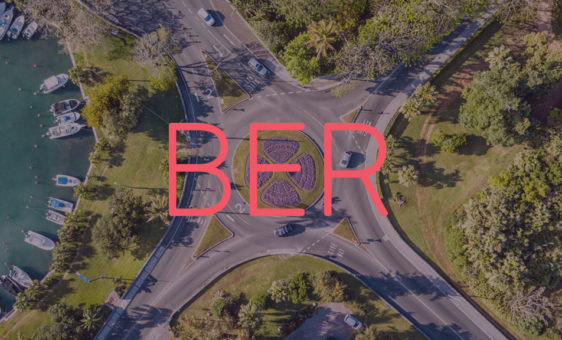1. What, if any, are the regulations applicable to token sales, aka initial coin offerings (“ICOs”).
In 2018 the Bermuda Government introduced legislation to govern ICOs in and from within Bermuda. The Companies and Limited Liability Company (Initial Coin Offering) Amendment Act 2018 (ICO Act) became operative on 9 July 2018, with underlying regulations published on 10 July 2018.
Under the ICO Act an ICO is defined as an offer by a company to the public to purchase or otherwise acquire digital assets.
The Bermuda Government also introduced the Digital Asset Business Act (DABA) in 2018 which established a licensing and governance regime for any person providing services to the public in the digital asset sector. Whilst the DABA does not require an ICO to be licensed in itself, it does require those service providers that are integral to the effective operation of an ICO in or from within Bermuda to be licensed.
2. Identify the applicable federal, provincial, state regulatory agency/agencies that have asserted or may assert jurisdiction over ICOs.
ICOs have been designated as Restricted Activities under Bermuda legislation, which requires all persons seeking to conduct an ICO to first obtain the consent of the Minister of Finance (Minister). The Minister has established and appointed a FinTech Advisory Committee (FAC), who assists the Minister in assessing ICO applications for consent. The Minister and the FAC may also issue a Code of Conduct to provide guidance on duties and requirements of persons affected by the ICO Act. In addition, the Registrar of Companies is empowered to impose civil penalties on companies that do not comply with the requirements of the ICO Act.
The DABA licensing regime is regulated by the Bermuda Monetary Authority (BMA).
3. Who is subject to the regulatory regime?
Any person conducting an ICO in or from within Bermuda is subject to the ICO Act and ancillary regulations. Any person offering digital asset business services in or from within Bermuda will be subject to the DABA licensing regime and ancillary regulations.
4. What regulations, if any, are applicable to sales of securities tokens v. utilities tokens?
The ICO Act does not differentiate between a securities token and a utilities token.
An ICO is defined as “an offer by a company to the public to purchase or otherwise acquire digital assets”.
Digital assets are defined as “..anything that exists in binary format and comes with the right to use it and includes a digital representation of value that –
a. is used as a medium of exchange, unit of account, or store of value and is not legal tender, whether or not denominated in legal tender;
b. is intended to represent assets such as debt or equity in the promoter;
c. is otherwise intended to represent any assets or rights associated with such assets; or
d. is intended to provide access to an application or service or product by means of blockchain;
but does not include:
e. a transaction in which a person grants value as part of an affinity or rewards program, which value cannot be taken from or exchanged with the person for legal tender, bank credit or any digital asset; or
f. a digital representation of value issue dby or on behalf of the publisher and used within an online game, game platform, or family of games sold by the same publisher or offered on the same game platform;”.
5. Is the Government expected to (further) regulate ICOs and what is the timing of any proposed regulation?
No.
6. Have there been any ICOs in your jurisdiction? If so, how are they normally structured?
Yes, there have been numerous ICOs launched by Bermuda vehicles in and from within Bermuda. The structure depends upon the project specifics, but the vehicles must be Bermuda limited liability companies or companies limited by shares.
7. Describe, briefly, your assessment of the Government’s current attitudes/activities, including enforcement trends and recent developments.
The Bermuda Government is pro-actively seeking to attract technology companies to Bermuda, with a specific focus on ICOs and digital asset businesses using blockchain technology. Their focus has been to establish a regulatory environment that protects the public whilst fostering and encouraging innovation. Simultaneously with the ICO Act and DABA, the Government of Bermuda has established an insurance license sandbox regime and a new class of banking license for anyone seeking to provide banking services to the digital asset business sector. The Government has also established a task force to consider and implement an electronic ID system for Bermuda.
8. Describe the sanctions for non-compliance with the relevant regulations.
Any person conducting an ICO in or from within Bermuda without the Minister’s consent or who [knowingly] makes or authorises a [material] untrue statement to be made in an ICO offer document commits an offence and shall be liable (i) on summary conviction to a fine not exceeding $50,000 or imprisonment for a period of one year or both, or (ii) on conviction on indictment to a fine not exceeding $250,000 or imprisonment for a period of five years or both. There are also civil liabilities for loss of damage sustained by reason of any untrue statement contained in an ICO offer document.
Under DABA the BMA may impose civil penalties on any person that breaches the requirements or prohibitions imposed not exceeding $10,000,000, and/or publish a statement to this effect. The BMA also has the power to apply for injunctions against persons who it reasonably believes will contravene or will, where such has already occurred, continue to contravene DABA.
9. Other important/notable information.
There are many important and notable aspects to this new legislation. Readers are recommended to contact the contributing member firm for specific advice on matters or clients that are affected by or seeking to benefit from this new legal and regulatory framework.
Appleby has a global team of lawyers with experience in this area, monitoring developments not only in the jurisdictions in which we operate, but more widely. This is a global industry and one that is here to stay. If you have any questions regarding the above, or are interested in hearing more about how we can assist, please contact a member of the Technology and Innovation Team.















